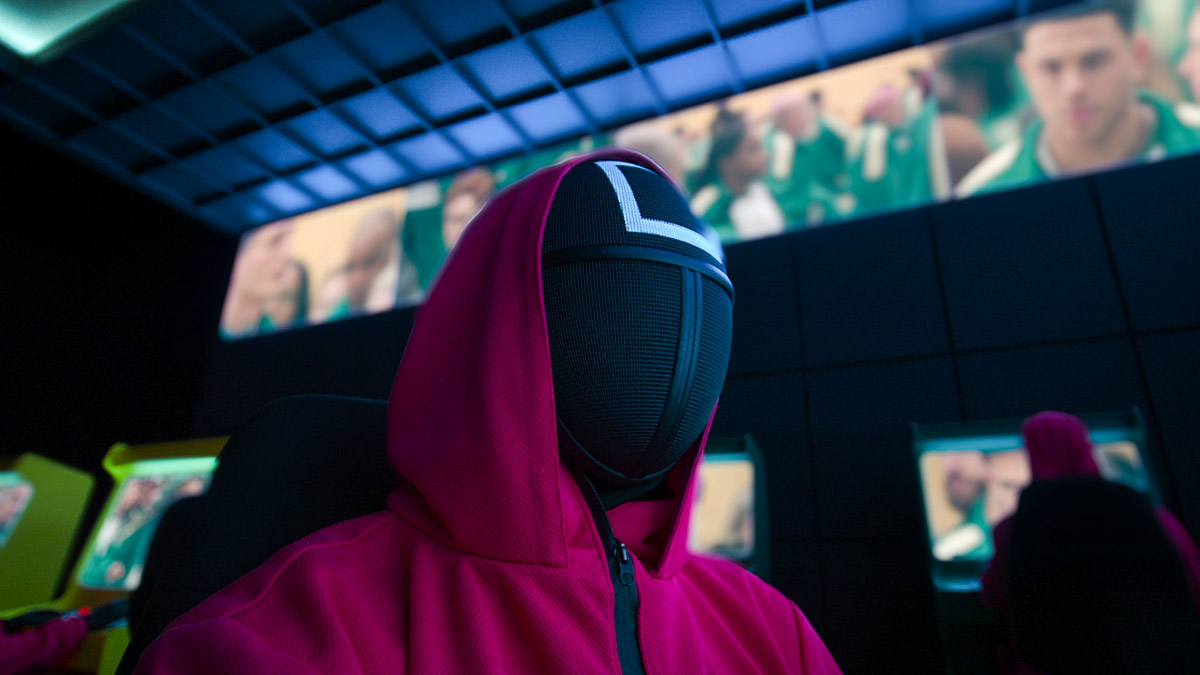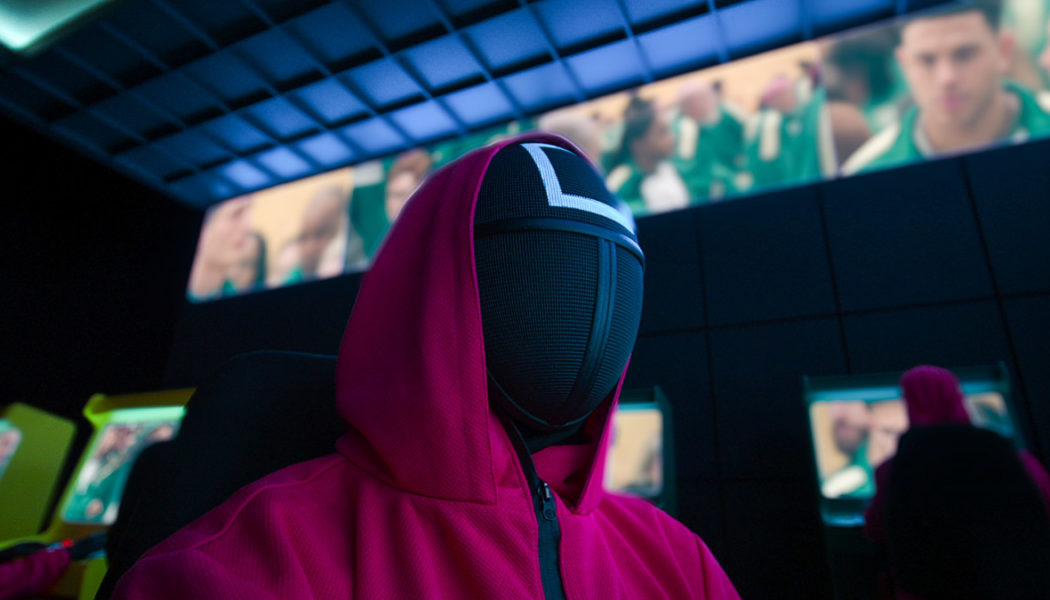
It’s just a game. A phrase that becomes pretty loaded, depending on the stakes of said game — your chance at fame or fortune being on the line, perhaps. Maybe even your life, depending on how dystopian the situation might be. This brings us to Squid Game: The Challenge, a season of television that hurts the brain to contemplate, because… well, did anyone involved in making this show actually watch Squid Game?
I’m not saying the show fails to capture the aesthetic or essential gameplay as depicted in the pop culture obsession of 2021 — but its existence is a shocking misstep that only makes sense if the producers involved in creating The Challenge were completely unaware of anything Squid Game the show was trying to say. Did they just skim the Wikipedia entry, study some production photos? I like believing in this theory, because it beats believing that Squid Game: The Challenge was made this way on purpose, by people who watched the whole season and still thought this was a good idea. The latter theory is such a bummer.
For those who didn’t tune into the original show, Squid Game told the story of an underground competition, in which 456 strangers in desperate need of money battled to win 45.6 billion won, primarily by surviving a series of children’s games where losers were quickly eliminated via gunshot. The violence was visceral and shocking: Dozens of players left bleeding on the ground during the opening game of Red Light, Green Light, with armed guards shooting those who failed the Dalgona cookie challenge as soon as their cookie cracked. The amount of death was matched only by the randomness of it, ensuring that the tension never eased once over those eight episodes.
Related Video
There’s no blood seen in Squid Game: The Challenge, though. And its players (unlike the ones in the show) are all eager volunteers, who wear black ink packs around their necks, which explode to simulate their untimely ends as the game progresses. Because it’s a game, but an incredibly muddled one, played with pretend stakes but some real money on the table — not quite the grand prize of the Korean original, but $4.56 million is still more than four times what a winner of Survivor gets.
Even before reality competition shows like American Idol, Big Brother, and Survivor rose to prominence in the early 2000s, writers and directors had been exploring the idea of the modern-day Colosseum as seen on TV: 1987’s The Running Man, based on a story by Stephen King, stands out as a prominent example, but sci-fi staples like Doctor Who, Star Trek, and The Twilight Zone also played in this territory decades before the world had to deal with Ryan Seacrest or Jeff Probst.
The difference between those fictional death games and Squid Game is that technically, because the titular game is conducted in secret, its players are in it for only the money. Meanwhile, the difference between Squid Game and real-life, non-lethal, reality competitions is that there’s no chance for fame and fortune as a result of winning, or even as a runner-up. (Since there are no runners-up.) Squid Game: The Challenge attempts to operate somewhere in a nebulous middle ground. It doesn’t work.









